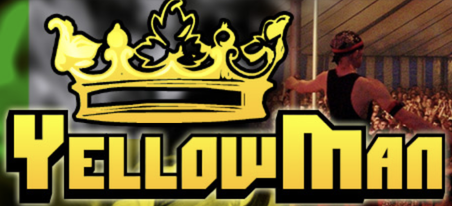While musicians have generally metaphorically approached pot in jazz and rock, reggae is much more direct, and the words “marijuana,” “pot,” “cannabis” and “ganja” are very regularly found in the lyrics of the songs, either to request their legalization clearly or to evoke a specific spiritual experience.
To understand this experience, it is necessary to go beyond looking at reggae as an aesthetic genre and delve into the religious and social history of Jamaica, where this musical genre was born in the late 1960s. If reggae finds its musical origins in a fusion between ska, calypso, rocksteady and rock’n’ roll, it is also, for many, the flagship of Rastafarianism, a cultural, social and spiritual movement born in Jamaica in the late 1930s with a desire to bring the descendants of slaves closer to their African roots.
Rastafarianism
The Rastafarian movement is named after Tafari Makonnen, Emperor of Ethiopia from 1930 to 1974, known as Haile Selassie I. But how could an Ethiopian emperor give his name to a Jamaican spiritual movement 12,500 kilometers away? During the 1930s, the Back to Africa movement gained momentum as the community of descendants of black slaves experienced a severe identity crisis. In Jamaica, this reflection is embodied by Marcus Garvey, nicknamed the “Black Moses,” who acts as a prophet of a movement that aims to unite all the black communities of the world. Garvey often refers to Selassie and Ethiopia in his writings and speeches, as this state was the only one to resist European colonization, except during an Italian occupation during the Second World War.
Garvey turned Selassie into a kind of black messiah and generated the Rastafarian movement around this character who, ironically, would never recognize Rastafarianism, Ethiopia being a resolutely Christian state for 1500 years.
What about cannabis in all this?
Again, we have to go back in time a little bit, to the middle of the 19th century to be more precise, when Jamaica is a British colony. After the abolition of the sale of slaves on the international market in 1807, the British “imported” workers from India (another British colony), who brought cannabis plants in their luggage, which they called “ganja.”
With the climate as it is, Jamaica is becoming a fertile breeding ground for cannabis cultivation. This herb is widely consumed by Afro-Jamaicans, to such an extent that the white elites, who control the country’s political authorities, decide to ban its consumption and culture with the “Ganja Law,” passed in 1913. Then, despite a relaxation of the law in 2015, decriminalizing the possession of fewer than two ounces of cannabis, the plant will still be officially banned on the island. Besides, considering that 37,000 acres (150 km2) of land are devoted to cannabis cultivation, it can be concluded that the law may not be as effective as one would like.
Knowing this, there is, therefore, a certain logic in the fact that a black identity movement makes the use of cannabis, banned by whites, symbolic. It is in this context that many Rastafarian followers (some are still against it) decide to make their consumption of ganja an integral part of their social, political and spiritual experience since according to them, it must be smoked to raise consciousness and soul and in a meditative context. “Grass heals the nation” is their motto and this grass should not be used for recreational purposes. Rastas usually consume cannabis either through a Chalice or even a weed vaporizer such as the ones sold on the website Cannavapos and used by Chronixx, one of the leading young artist these days!

 It is in this context that reggae is born, developed by musicians whose social and identity concerns are in harmony with those of Rastafarianism. As its followers consider cannabis as an integral part of this position, it will become one of the important themes openly addressed in the songs: the words “ganja,” “pot,” “cannabis” and “marijuana” are heard in the reggae texts. We sing about its virtues, or we ask directly for its legalization, as in the song Legalize It, the eponymous song from the album of former Wailers member Peter Tosh released in 1975.
It is in this context that reggae is born, developed by musicians whose social and identity concerns are in harmony with those of Rastafarianism. As its followers consider cannabis as an integral part of this position, it will become one of the important themes openly addressed in the songs: the words “ganja,” “pot,” “cannabis” and “marijuana” are heard in the reggae texts. We sing about its virtues, or we ask directly for its legalization, as in the song Legalize It, the eponymous song from the album of former Wailers member Peter Tosh released in 1975.
Bob Marley
It is impossible to discuss this subject without mentioning the positions of the legendary Bob Marley, the flagship of reggae. He converted to Rastafarianism in 1966 (he was a Catholic) and campaigned all his life for the legalization of cannabis. Moreover, Rastafarianism owes its international popularity to Marley, who popularizes the movement all over the world with his music.

